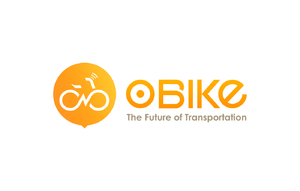Difference between revisions of "ANLY482 AY2017-18 T2 Group 31 Project Overview"
| Line 17: | Line 17: | ||
[[ANLY482_AY2017-18_T2_Group_31 Project Overview| | [[ANLY482_AY2017-18_T2_Group_31 Project Overview| | ||
<font color="#000000" size=2><b>PROJECT OVERVIEW</b></font>]] | <font color="#000000" size=2><b>PROJECT OVERVIEW</b></font>]] | ||
| + | |||
| + | |||
| + | | style="background:none;" width="1%" | | ||
| + | | style="padding:0.3em; font-size:100%; background-color:#FF8C00; text-align:center; color:#F5F5F5" width="10%" | | ||
| + | [[ANLY482_AY2017-18_T2_Group_31 Project Overview| | ||
| + | <font color="#F5F5F5" size=2><b>PROJECT ANALYSIS</b></font>]] | ||
| style="background:none;" width="1%" | | | style="background:none;" width="1%" | | ||
Revision as of 18:50, 28 February 2018
|
|
Sponsor Background
oBike is Singapore's first homegrown stationless smart bikesharing company which uses technology to change how transportation is viewed locally. It allows commuters to travel during one-way first and last mile commuting – via bicycles located all over the island.
oBike is launched in Singapore in February 2017 and has since expanded to 12 other countries: Taiwan, Korea, Malaysia, Australia, Thailand, Germany, Austria, the Netherlands, Belgium, Italy, the United Kingdom, Switzerland and Sweden.
oBike’s aim is to provide a convenient and environmentally friendly commute option for all, especially given Singapore’s compact size and interconnected urban areas.
The bikes have a built-in Bluetooth lock and can therefore be left anywhere at the end of a journey, not just at a docking station. Users use a smartphone app to locate and hire bikes. Once users finish their ride, they need to manually lock and leave the bike in any parking spot to be ready for the next user. At the time of locking the bike the user must again ensure they have a Bluetooth and an internet connection, in order for the oBike system to record the end of the ride and correctly calculate the hire charge.
As of the month of September, 2017, oBike has achieved more than 1 million downloads since its inception, far surpassing its competitors. According to third-party data agency, App Annie, it shows that the total number of app downloads from oBike has consistently been at the top, a strong showing from the SEA bike-sharing leader.
Project Objectives
1. To identify where and when, indiscriminate parking is likely to occur so as to better manage the bikes before reports are made by citizens and government agencies.
2. Focus on a specific area in Singapore to see how better optimization can be done on the allocation of bikes during the different time of the week.
Sponsor Motivation
As the use of smart bike sharing becomes more prevalent, the number of indiscriminate parking is on the uprise too. oBike has received numerous tickets from Land Transport Authority (LTA), Town Council and NParks regarding bike users not parking within the marked out yellow box. For each bike that is not re-located within 4 hours from the time of ticket reported, a fine of $500 is imposed. In addition, oBike also suffers damage to its reputation and relationships with the regulatory authorities. Currently, oBike gets an average of 300 tickets every day, and oBike would like to seek for solutions to minimise the number of indiscriminate parking reported.
Our Motivation
Bike sharing is an initiative that has been recently launched in Singapore. As bike enthusiasts, we are hoping to find ways to improve the existing system by garnering insights, so as to further encourage more people to ride. oBike is also a local start-up which we wish to support.

